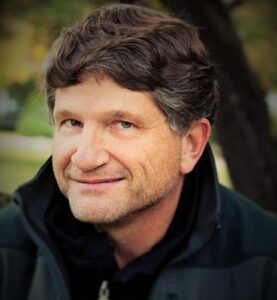Medicine is at a critical juncture in society. Rising costs and increased demands are spurring efficiencies. Entire industries exist solely to streamline health care, borrowing techniques from modern productivity models. Data has replaced the doctor and one Denver physician is sick of it.
Dr. Abraham Nussbaum just released The Finest Traditions of My Calling: One Physician’s Search for the Renewal of Medicine and it’s a siren call for the profession to return to its roots.
The book is a practical response to the encompassing political, societal and economic focus on health care. While modern solutions revolve around access and funding, Nussbaum believes that his peers should lead the charge toward a less emphasis on fiscal outcomes, and more priority on people.
The prescription, according to Nussbaum, lies in returning to the heart of medicine.
“I am on a quest to discover the finest traditions of my calling,” said Dr. Nussbaum. “I want us to consider health care reform vs. health care renewal.”
He writes: “We need to envision hospitals and clinics not as factories but as cultural spaces such as schools and gardens, restaurants, and gyms, all of which require human relationships for their operation."
He sees a general malaise in his peers and he believes it’s because they have lost sight of their first call.
“We have physicians dropping out of the profession. It’s because they have forgotten their first love, why they were drawn to the field.
“At my work there is a bench with the words engraved on the front: ‘Live Justly. Walk humbly.’ But the Biblical source is never cited. We’ve forgotten the principles of who are in the world. We don’t know why we are in this field.”
History shows that Jewish and Christian roots have transformed medicine.
“The Jewish practice of hospitality and the Christian gift of charity changed Western health care and advanced the field and our society” he said. “We need to return to those roots and ask some hard questions. What causes us to care for the sick? Is there a motivation beyond money?”
Nussbaum is a psychiatrist at Denver Health and admits that his patients are at their lowest points in life.
“I try to recognize them for who they are. I see them as broken vessels, as God’s children,” he said. “What do physicians see? Do they see a billing code? We need to see them as a fellow creature in pain.”
Medicine has been reduced to a relief of symptoms according to Nussbaum. “We aren’t here just to create relief. Sometimes there is no relief.”
“People don’t want to meet a quality metric or to be part of an evaluation. They want restoration. That’s why we need to go the core.”
To Nussbaum, he isn’t in a job. Rather, he sees his work as a vocation, a holy order that is helping do God’s work in this world.
The book title – and vocational mission – draws from a forgotten line of the Hippocratic Oath: “May I always act so as to preserve the finest traditions of my calling and may I long experience the joy of healing those who seek my help.”
Dr. Abraham Nussbaum is a physician at Denver Health and an assistant professor at the University of Colorado School of Medicine. For more information, visit his personal website.

